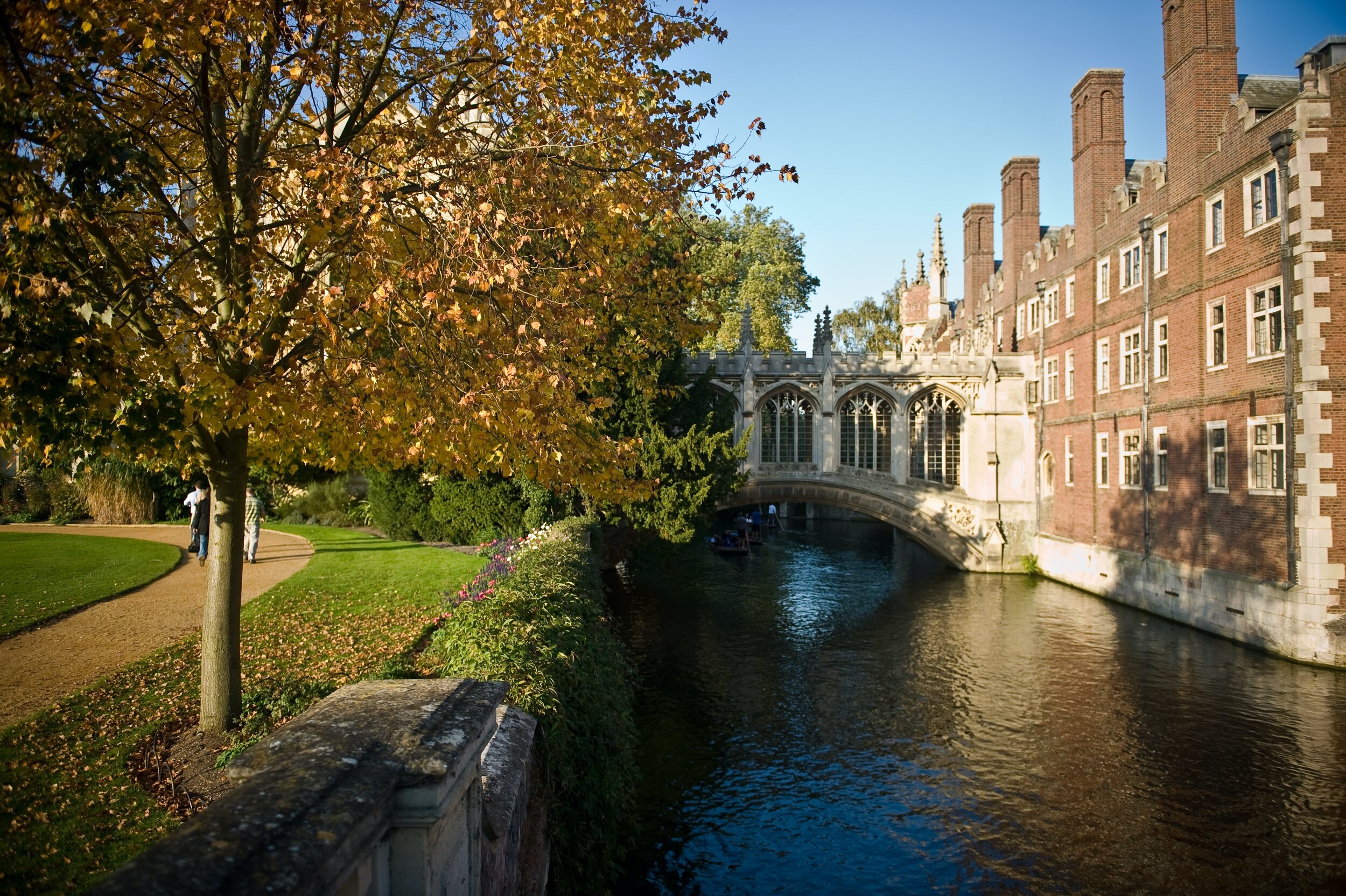Ultimate Guide to Cambridge University
Get to know the world-renowned university a little better with this complete guide to Cambridge.
Cambridge
Location
Full of cobbled streets and gorgeous architecture - not to mention the river that runs through the centre - most would agree that Cambridge is one of the prettiest cities in Britain. It’s smaller and quainter than Oxford, filled with cosy cafes and hidden alleyways. The small-town feel doesn’t mean that Cambridge is boring, though - quite the opposite. If you’re into culture, the Fitzwilliam Museum is packed full of historic artwork, and there’s always a student play on at the ADC Theatre. For those looking for nightlife, the town has plenty of pubs and bars, while in the summer, people drink Pimms on The Backs, the stretch of green that runs along the River Cam.
What’s more, Cambridge is incredibly easy to get to. Located in the east of England, it takes less than an hour to get to London by train, and the city is 30 miles away from Stansted International Airport. Getting round is easy, too - everything is accessible by foot or by bike (cycling is super popular!).
History of Cambridge University
Founded in 1209, Cambridge is the world’s fourth oldest university. Its origins are linked to its greatest rival, Oxford University. In the twelfth century, Oxford townspeople became increasingly hostile towards the academics at the University - the tension culminated when three Oxford scholars were hanged by the authorities, accused of murder. Academics started to move away from Oxford - they wanted to establish a new university, away from hostility. Thus, the University of Cambridge was founded.
One of the most distinguishing features of the University is its colleges. Peterhouse is the university’s oldest college - it was founded in 1284. The most recent college is less than a century old - Robinson was founded in 1977. For the majority of its history, the university only admitted men, but that changed in 1869, when the first college for women, Girton, was established. To this day, there remains three colleges which only admit female students; Newnham, Murray Edwards, and Lucy Cavendish.
Cambridge has plenty of famous alumni. Scientists that have studied here include Isaac Newton, Charles Darwin, Francis Crick and James Watson, while on the arts side, the university boasts Stephen Fry, Emma Thompson and Ian McKellen among its former students.
University of Cambridge
Cambridge Traditions
Cambridge is famous for its quirky traditions, ranging from the formal (you have to wear a gown when you go to a college dinner) to the ridiculous (a cardboard boat race is held every year to mark the end of exams!). Cambridge’s traditions reflect its rich history. You’ll find everything from drinking games like ‘pennying’ to secret societies like the Cambridge Night Climbers.
Societies
Student life is lively at Cambridge; there’s something for you, whatever you enjoy doing.
For those interested in drama, the Cambridge Footlights, which boasts alumni such as John Cleese and Olivia Coleman, provides ample opportunity to get involved with student production, whether you like to be on stage or behind the scenes. Several student newspapers, such as Varsity and The Tab, offer students the opportunity to test out their writing skills. There are plenty of political societies, too, including the Cambridge Union, a speaking and debate society which hosts talks from a range of famous faces.
The list of sports on offer seems endless - you can get involved with anything from ice hockey to ultimate frisbee. There are three sports centres which house facilities like gyms, tennis courts and swimming pools. The most famous sport is, of course, rowing - one of the most important events of the Cambridge year is the boat race against Oxford.
There are also lots of cultural and religious societies, volunteering opportunities, and societies that exist just for fun - groups include the Wine Tasting Society, the Harry Potter Society, and a Capture the Flag club.
Facilities
As one of the top universities in the world, it’s not surprise that it has state-of the-art facilities. There are over 100 libraries, with access to over 8 million books and journals. The Student Services Support Centre is a hub for all kinds of student support, including a Counselling Service and Career advice. There’s a Language Centre, too, if you want to learn a new language alongside your study. They also offer an academic English support programme, which is fantastic if English isn’t your first language. Cambridge is always investing in its facilities, too - at the moment they’re expanding the Cambridge Biomedical Campus, which will house facilities for groundbreaking biomedical research.
Punting on the River Cam
Cambridge University Colleges
With 31 colleges to choose from, it can be difficult to decide where is right for you. King’s, Trinity and St John’s are among the grander colleges, complete with classic Oxbridge architecture and sprawling green quads. If you prefer somewhere small and cosy, Christ’s, Corpus Christi and Pembroke are great options. Clare and Downing are also renowned as beautiful colleges in central locations. There are modern colleges, too - while Churchill and Robinson may lack Instagrammable architecture, they outdo other colleges in terms of accommodation and amenities.
Cambridge Applications
It’s worth noting that Cambridge applications are different from most university applications. Before you apply, you need to choose a college, as well as a course. Your college will be where you live, eat, and socialise. You also have supervisions in college. Not all colleges offer every course. There is also an option to make an open application. This means that you will be assigned a college by the Admissions team. You college choice won’t effect your chances of getting in - so don’t choose a college based on how competitive you think it might be!
Once you’re set on your course and college, you need to complete your UCAS application. This involves a few forms, a supplementary questionnaire, and a personal statement. The UCAS deadline for applying is earlier than other universities in the UK - it needs to be completed by 15 October. Students applying from outside of the UK or EU will also need to complete the Cambridge Online Preliminary Application. Then, some courses require a written assessment, or a submission of previously completed written work. Finally - and most famously - is the interview stage. These take place in the first three weeks of December. After this, students find out whether they have received an offer or not in January.
Studying at Cambridge is a wonderful opportunity. Making an application is exciting and nerve-racking - but Getting In helps make the process a little easier. To find out more about how we can help, get in touch with us today.




